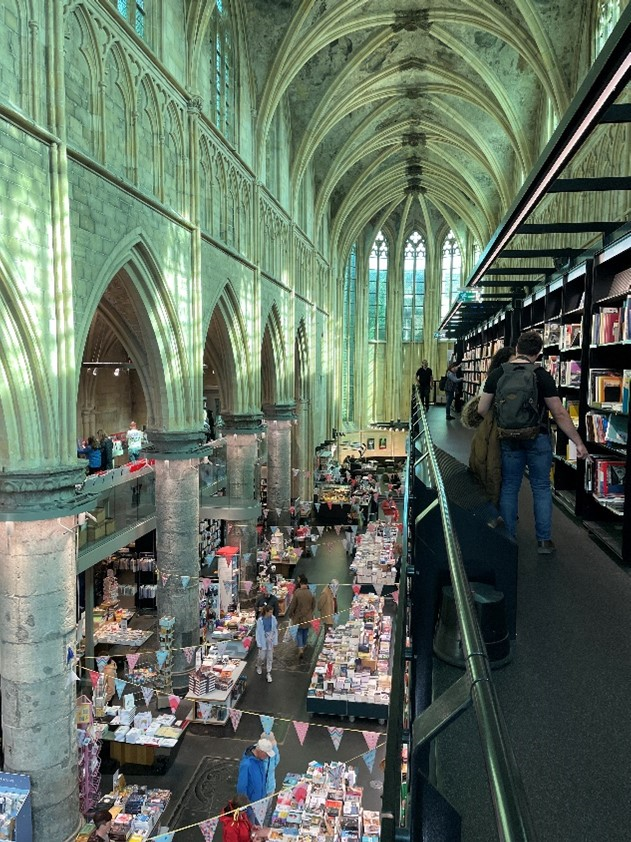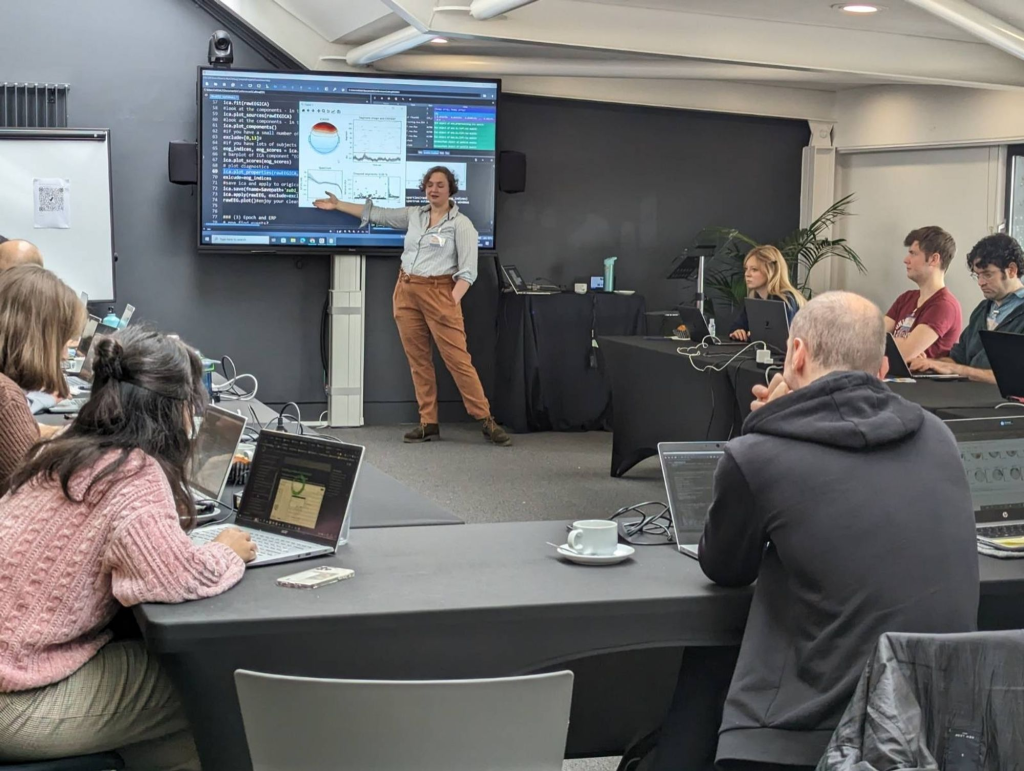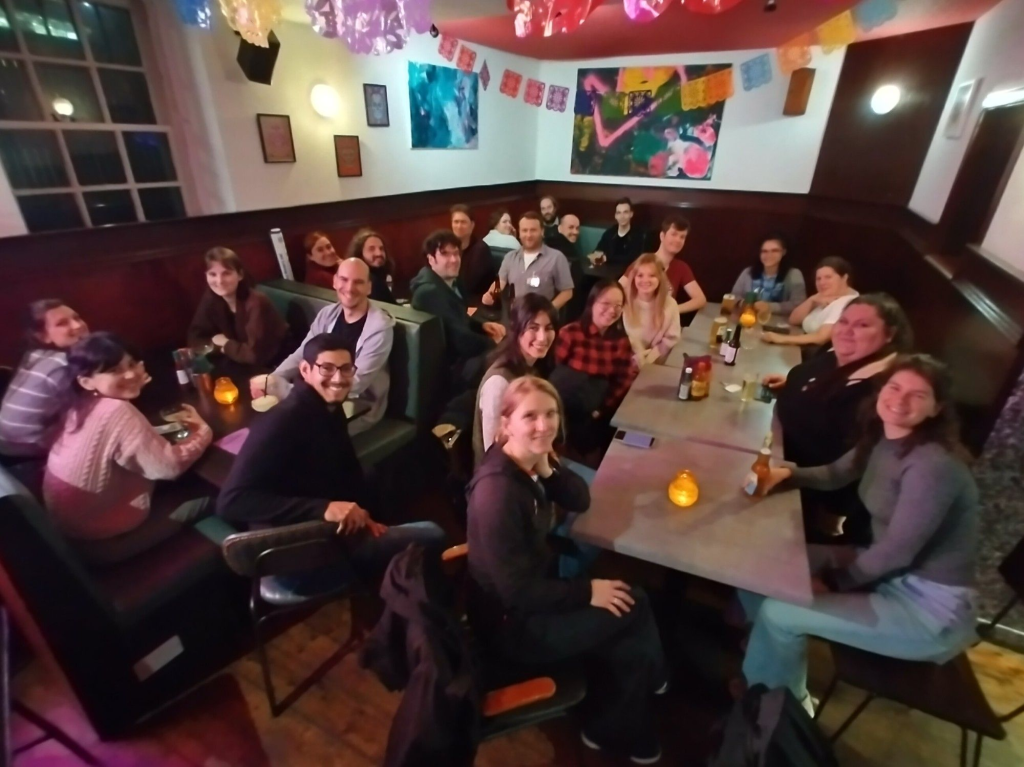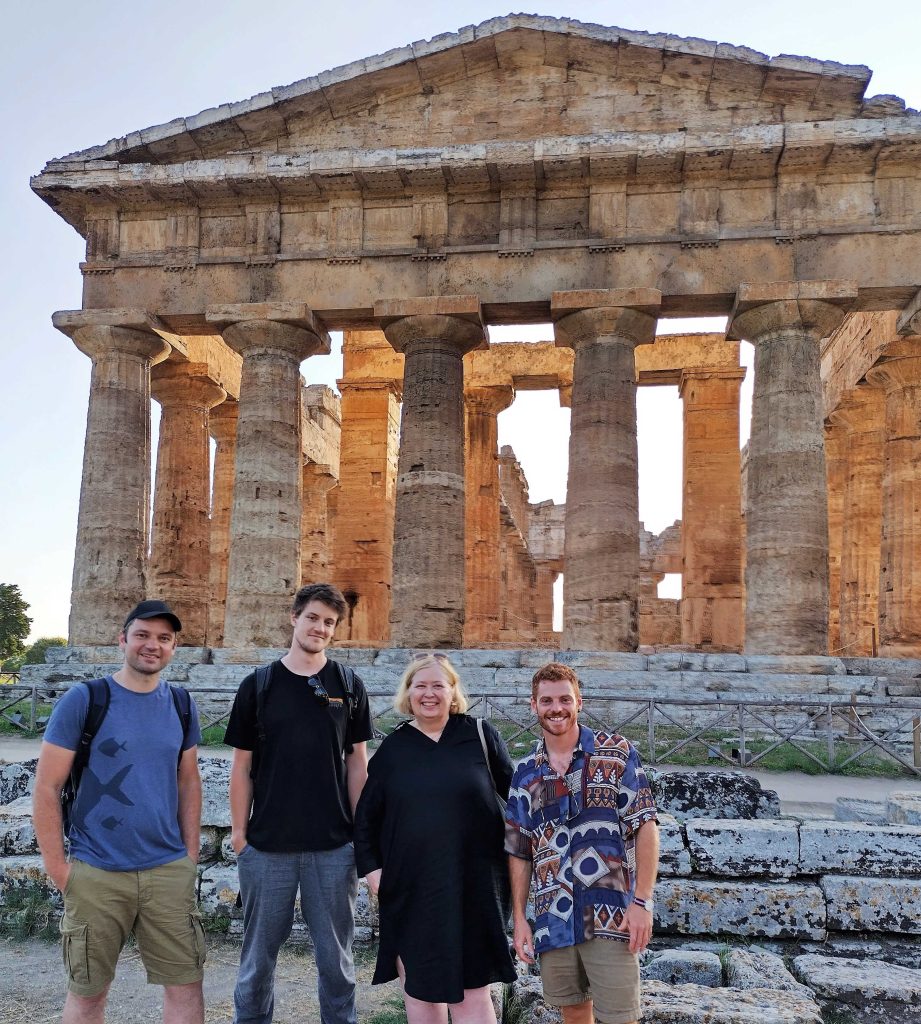In summer 2021, we started an initiative for connecting Scottish-based with other cognitive neuroscientists in the EU, with the aim of keeping us closer together, across the practical divides created by Brexit. We were lucky enough to receive funding to that purpose from the Royal Society of Edinburgh, and started the Scottish-EU Critical Oscillations Network (ScoNe) in Jan 2022.
In May that year, many of us met in person at the International Conference on Cognitive Neuroscience in Helsinki, also co-organised by one of our founding- and steering committee members (Satu Palva). At the meeting we laid out our plans to put together a consensus paper on the state of our field, with contributions from all members.
Three years later, the paper has finally been submitted as a pre-print (available here, currently under review). We found it quite fitting to celebrate our success at the next ICON – only takes place every 3 years – in Porto, Portugal. We got many members of the band together for a night at Musa, missing one founding member, Paul Sauseng, without whom SCONe wouldn’t have existed in the first place – DANKE PAULI! – but who couldn’t make it to ICON 🙁 Next time then!

What’s next for SCONe? We are currently working on a meta-analysis (first result of which where presented by member Laura Klatt at ICON 2025) and a follow-up to our consensus paper. We have started opening SCONe up beyond its original boundaries (Scotland & EU researchers), so do get in touch if you want to take part / be kept up to date about further developments. Finally, we are also looking for further funding opportunities and input on how to evolve the network.





